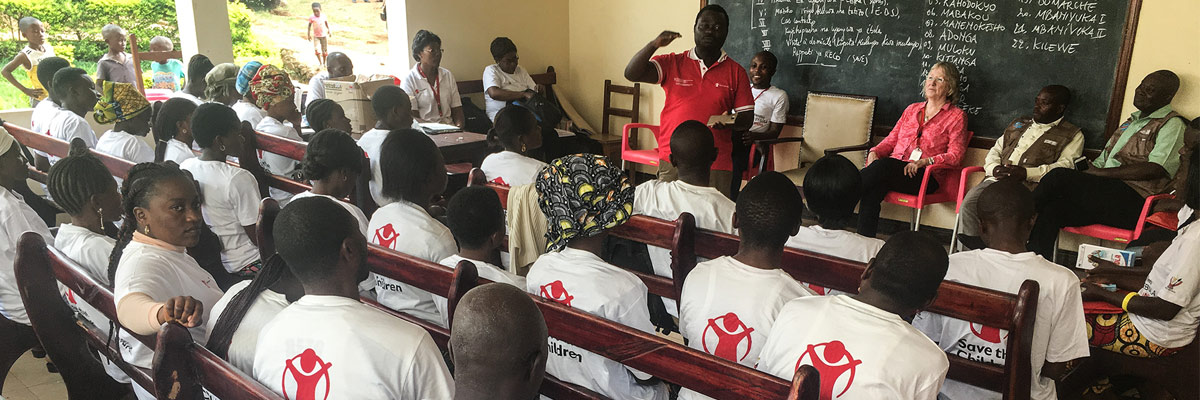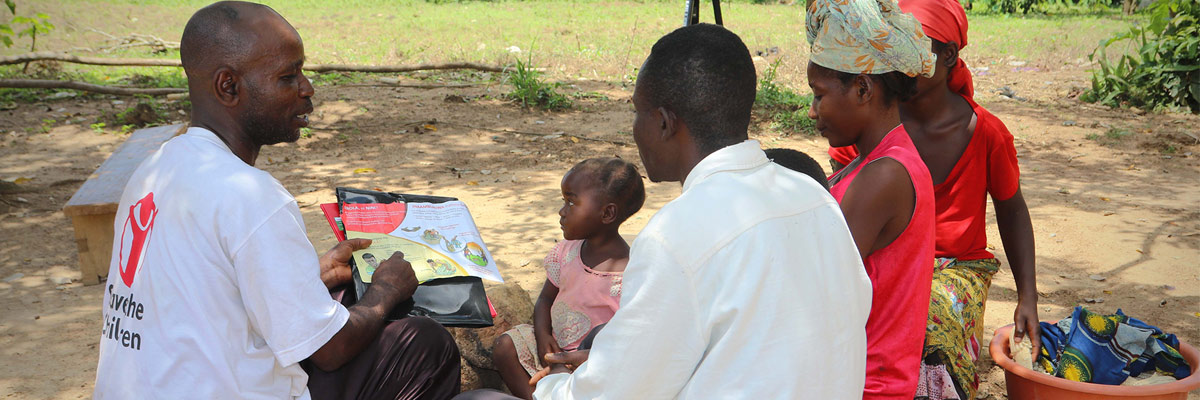People are right to be frightened by Ebola. It is an horrific disease with a high mortality rate
However, fear of Ebola is often derived from a misunderstanding of the disease, both here and abroad, and it’s leading to the needless death of children.
Right now in Democratic Republic of the Congo (DRC), we are facing our 10th Ebola outbreak, and it is particularly challenging to respond to, as the epicentre is just kilometres from a very active conflict zone.
Ebola poses dangers to children beyond the immediate threat of contracting the virus. For example, if both parents die then children are left orphaned, or if the father of a household dies the family loses the main bread-winner leaving children in a very vulnerable state. Under such circumstances, kids are often sent out to earn money which can lead to ongoing child labour and abuse. Parents might take girls out of school to go and earn money, which exposes them to all sorts of threats, including sexual abuse.
Save the Children has a remarkably capable team responding to this outbreak in Beni, North Kivu. We have some highly-skilled people working in this challenging environment, particularly in the areas of community mobilisation, and they’ve done a great job with community and religious leaders to get Ebola-prevention messaging across.
Many of our staff are from Beni itself. They are joined by local staff from other areas within DRC like South and North Kivu, as well as members of Save the Children’s Emergency Health Unit.

The Emergency Health Unit trains health workers on Ebola prevention in Beni, North Kivu.
Other than the challenges posed by responding in a conflict area, the main obstacle we face is a resistance from the community itself. The main focus of our work – which is crucial in an outbreak such as this – is community outreach, informing families of the dangers of Ebola, and how to protect themselves from catching the disease.
Our Community Health Workers are armed with materials to help local people better understand Ebola and how to ensure they aren’t frightened by it. It’s important to remember that we are asking our Community Health Workers to go out into the community where there is Ebola, so we also explain to them how to protect themselves. Some families receive these staff well, others do not, and a lack of understanding and fear of the virus has seen our community health workers met with hostility and even violence in some instances. But they endure, and I am proud and inspired by their dedication to protecting children through this critical work.

One of Save the Children's Community Health Workers explains to a family how to identify symptoms and protect themselves from Ebola.
A lot of people in Beni think that Ebola has been brought in from the outside and they don’t want to take family members for treatment. This sadly means that their loved ones die, which is unnecessary because if you get someone to the treatment centre in time they have a good chance of being cured.
People are also running away – some people who had contracted the virus fled Beni and went to Butembo and now Tchomia, causing greater difficulties to contain this outbreak.
The way Ebola is transmitted is also misunderstood. Many people think that you can catch the virus just by touching an infected person, but it is in truth only through exchange of bodily fluids, and people are only contagious when they present with symptoms.
I am not trying to downplay the serious threat Ebola poses in DRC, nor that Save the Children’s response to the outbreak is not important. On the contrary, it was absolutely crucial that we, alongside the government, UN agencies and other NGOs, responded as quickly as we did. The coordination between us is inspiring, and our ongoing work on the ground has drastically reduced the number of families devastated by Ebola.
There is however, only a certain amount of funding available for humanitarian work, and the broader misunderstanding and fear of Ebola across the world means there is not enough money to go to other outbreaks here in DRC that kill far more people. Kids are dying from cholera, malaria and pneumonia far faster than they are from Ebola. Yet, if you say, “We need money for cholera,” nobody is interested. It’s endemic status here in DRC is part of the problem.
We need funding for our other humanitarian work in north and south Kivu, the Kasais and Lomami – that focus on issues like cholera, malaria, pneumonia, malnutrition, Child Protection and Education. Right now, our other humanitarian work is only 25% funded. The very word Ebola instils fear and people are right to be frightened, but we mustn’t let fear eclipse the needs of the most deprived children in DRC, who also desperately need our help.
Heather Kerr has been Save the Children’s Country Director in DRC for over 4 years. She has previously worked as the Country Director in the Ivory Coast and Sierra Leone, where she worked on the response to the Ebola outbreak in 2014.
Images: Save the Children